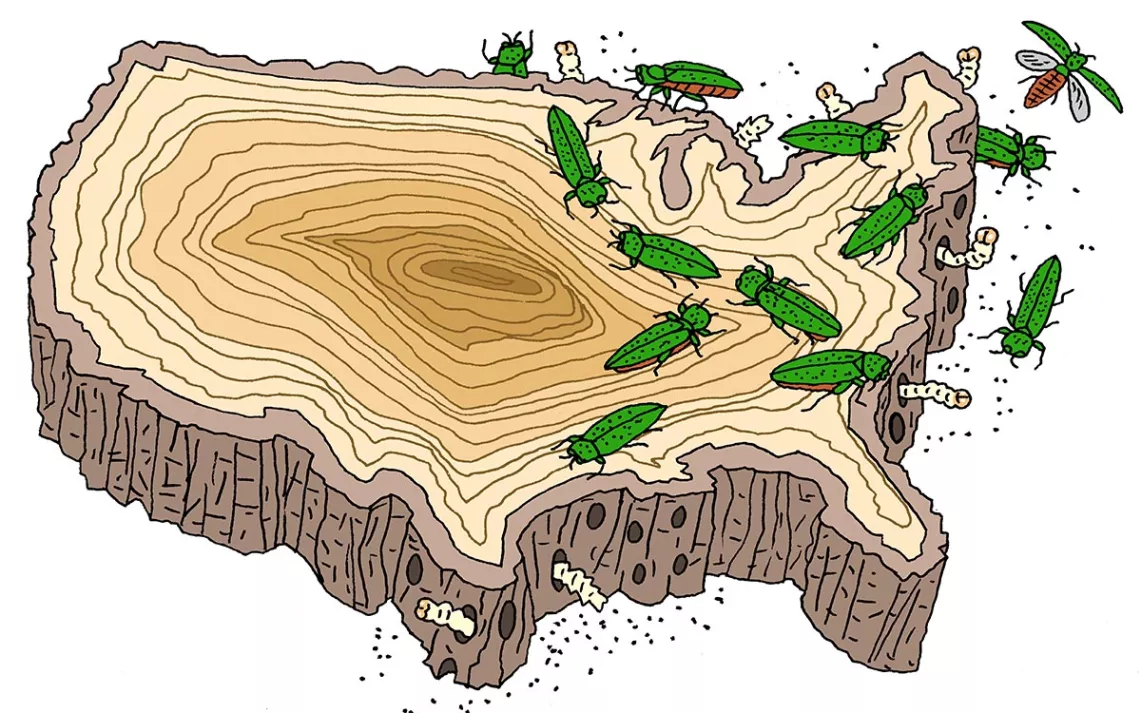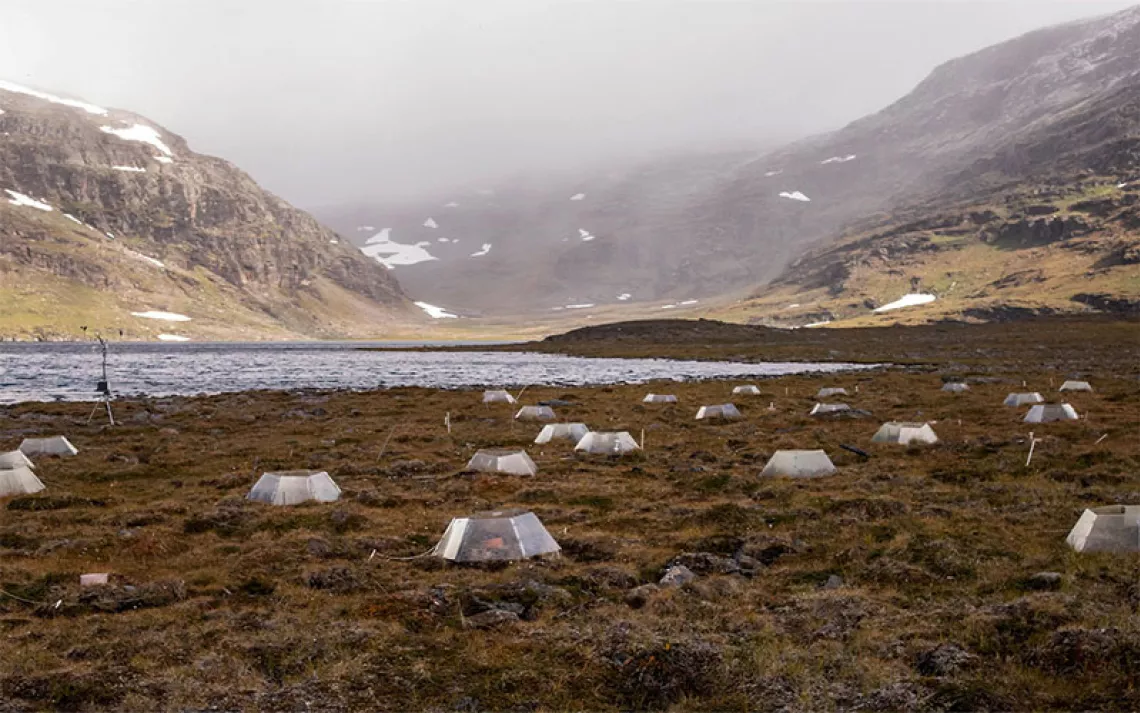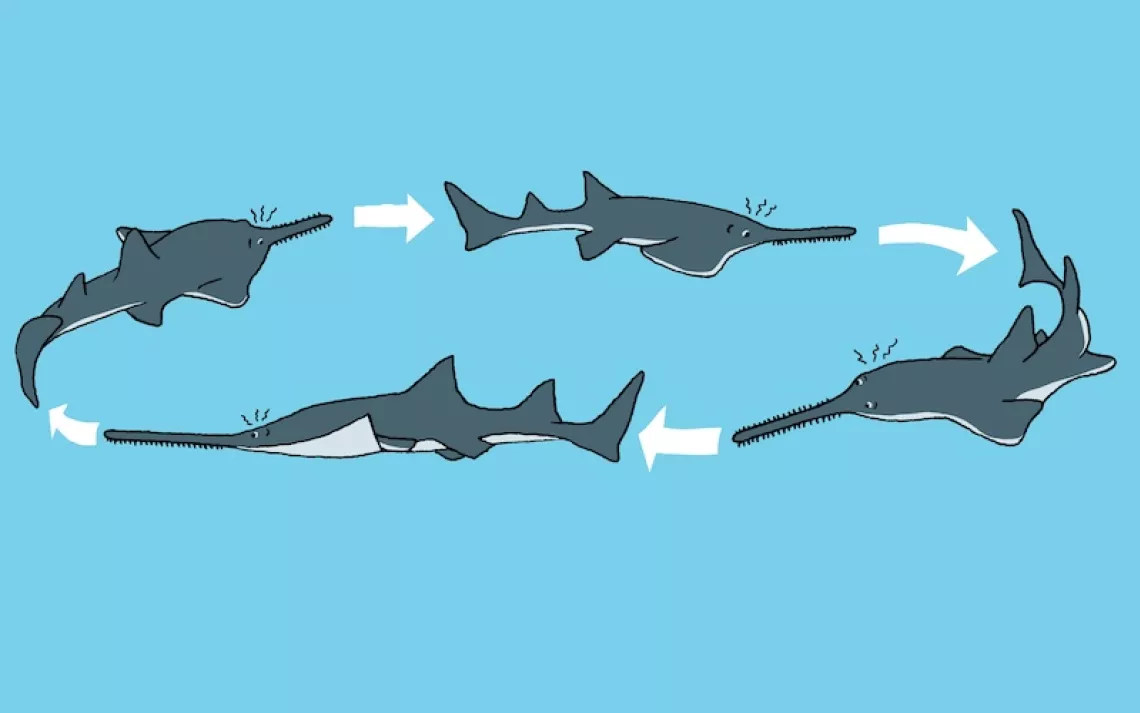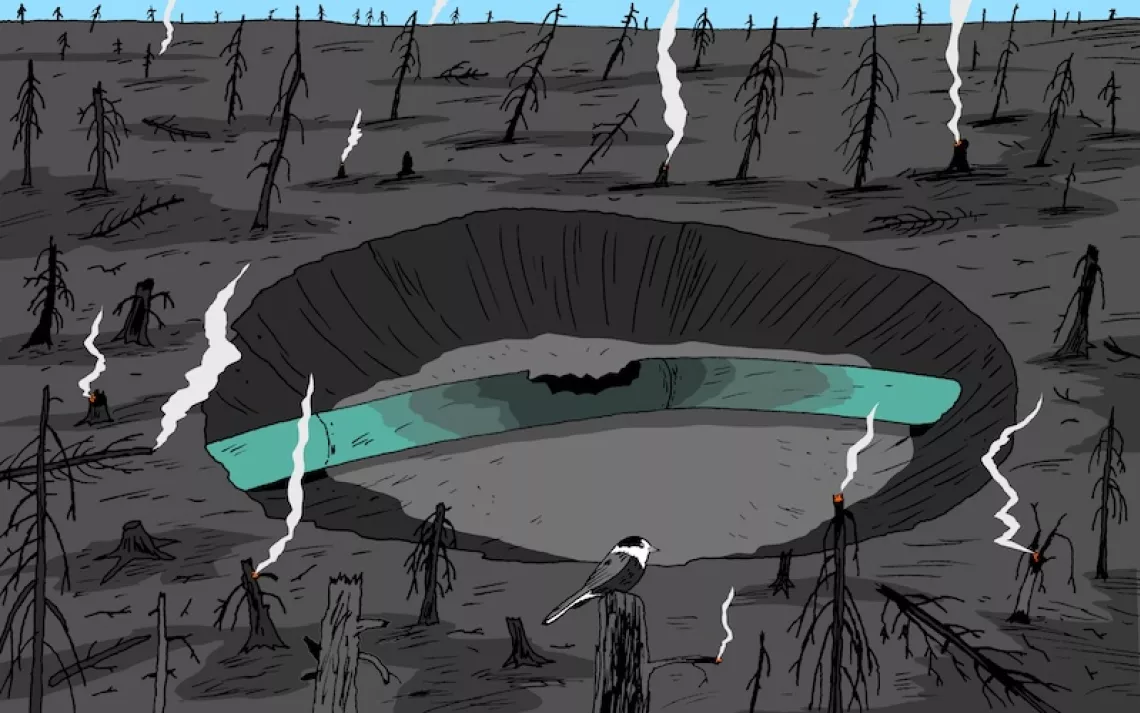ICYMI: Meet the Beetles, Anti-Russian Dolphins, Kilauea Bats Last, & More
A weekly roundup for busy people

Illustration by Peter Arkle
The U.S. Department of Agriculture gives up on trying to quarantine the emerald ash borer, a tree-destroying invasive beetle. A quarantine was put in place in 2003 in Michigan, but by now the insect has spread to 33 states.
The Center for Biological Diversity sues the U.S. Fish and Wildlife Service to compel it to protect the 1-1/2-inch-long San Joaquin Valley giant flower-loving fly.
Kilauea erupts.
CO2 levels in the atmosphere exceeded 410 parts per million for the entire month of April 2018, a level that Earth has not experienced in at least 800,000 years.
Bowhead whales in the Alaskan Arctic are prospering from the increase in open water—and therefore krill—that comes with warming temperatures.
At a hearing of the House Science, Space, and Technology Committee, Representative Mo Brooks (R-Ala.) suggests that global sea level rise is caused by the crumbling of the White Cliffs of Dover.
Believers in conspiracy theories are more likely to be climate deniers.
The energy required for a single Bitcoin transaction could power the average U.S. household for a month.
More than 10 million people around the world are now working in the renewable energy field.
Costa Rica’s new president vows to fully decarbonize his country.
Aluminum producers Alcoa and Rio Tinto claim to have developed an aluminum smelting process with no carbon emissions. Swedish firm Hybrit is opening a factory that it says will produce steel using hydrogen from renewable energy, emitting only water vapor.
Ukrainian military dolphins captured by pro-Russian forces following Russia’s annexation of Crimea in 2014 reportedly refused food from Russian handlers and subsequently died.
According to reports to Chesapeake Dolphin Watch, an online citizen-science project launched in 2017, dolphin numbers in the bay have greatly rebounded.
Scott Pruitt establishes a legal defense fund. He is not required to report who is contributing to it until May 2019.
Concerned that a report on widespread contamination of drinking water by the chemicals known as PFOS and PFOA—especially near 126 military facilities—would be a “public relations nightmare,” the Department of Health and Human Services declines to publish it.
Emissions of the banned ozone-destroying chemical CFC-11 are rising, strongly suggesting that someone is secretly manufacturing it.
A federal judge overturns Oakland, California’s ban on coal handling and storage at its port.
Wolf researcher Robert Wielgus wins a $300,000 settlement against Washington State University for infringing on his academic freedom. Wielgus found that Washington’s policy of shooting wolves that preyed on cattle destabilized wolf packs and actually made predation worse, a conclusion that angered state ranchers, legislators, and university administrators.
For the first time in 200 years, South Georgia Island is free of rats and other vermin.
 The Magazine of The Sierra Club
The Magazine of The Sierra Club







